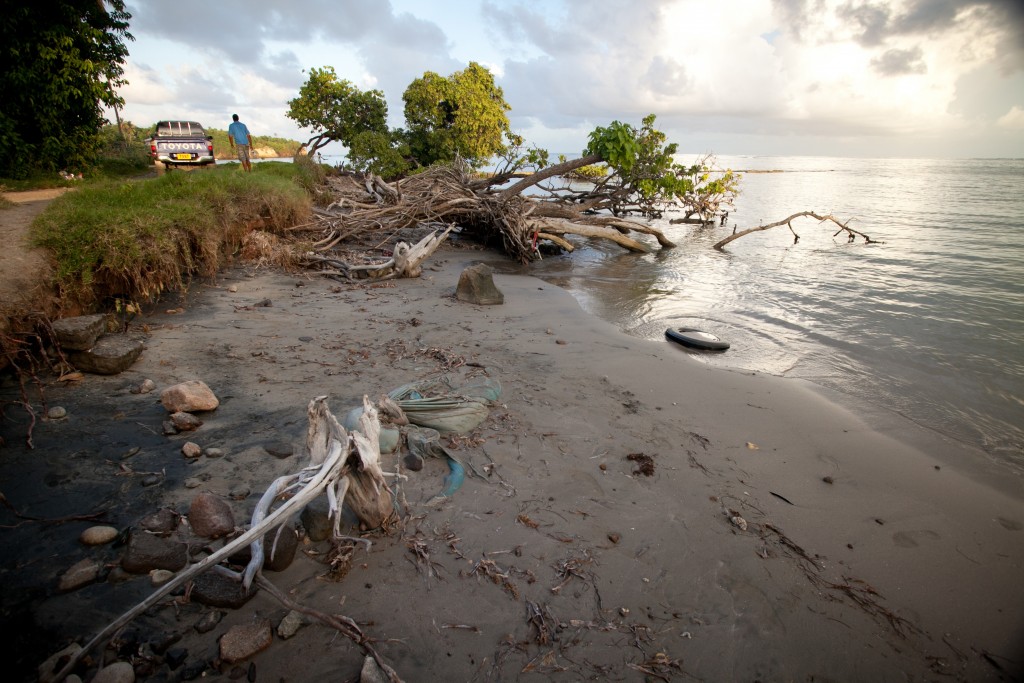Ecosystem Loss
Blue carbon ecosystems (mangroves, saltmarshes, and seagrass) are degraded and destroyed globally due to human activities. Common causes include: reclamation of land for construction, deforestation for timber and development, conversion to aquaculture ponds, terrestrial and marine pollution, and coastal development. Nutrient runoff from agriculture, siltation, and development have led to seagrass decline, and mangroves and salt marshes have been damaged by dredging, filling, diking, drainage and invasive species. These impacts are expected to continue and will likely be exacerbated by climate change and population growth.
Climate change can affect blue carbon sinks and their sequestration potential through alterations in their total area, composition, growth and productivity, and allocation of above- and below-ground biomass. ref For example, sea-level rise can erode and flood mangroves and salt marshes, and increase water depths above seagrass meadows, thus reducing light to support plant growth. Increased seawater temperatures may also lead to direct losses of seagrass meadows.

Remnants of an old pier and mangrove being inundated by rising sea level at Grenville Bay, Grenada. Photo © Marjo Aho
Blue carbon ecosystems are some of the most threatened ecosystems on Earth. Between 340,000-980,000 ha are destroyed annually. ref
Blue carbon ecosystem loss rates range from 0.7 - 7% annually. ref When they are degraded or lost, the carbon that had been sequestered in sediments can be released as carbon dioxide into coastal waters and the atmosphere. For example, 1.02 billion tons of carbon dioxide are being released annually from degraded coastal ecosystems, equivalent to 19% of emissions from tropical deforestation globally. ref
